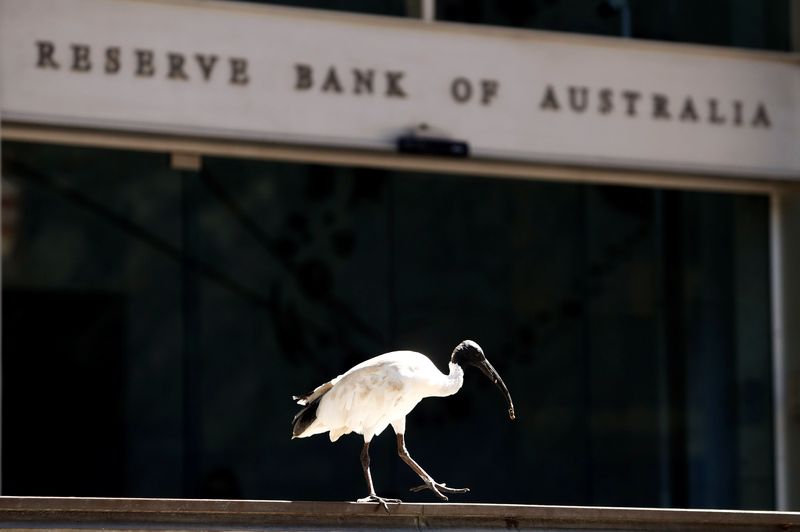By Jamie McGeever
(Reuters) – A look at the day ahead in Asian markets.
The Reserve Bank of Australia’s interest rate decision takes center stage on Tuesday, while debate intensifies over the likely success – or otherwise – of China’s surprise announcement that it plans to implement looser monetary and fiscal policy.
The RBA is widely expected to keep its cash rate unchanged at 4.35%, so the focus will be on when Governor Michele Bullock signals the easing cycle might start.
Economists polled by Reuters reckon it will be some time in the second quarter, and Aussie money markets are pointing to a quarter point cut on April 1.
Sentiment across Asia may be dented by Wall Street’s slide on Monday, but investors continue to digest the first shift in China’s broad policy stance since 2010.
The Politburo’s recommendation that a “more proactive” fiscal policy and “moderately loose” monetary policy be followed may not be on the same scale as Mario Draghi’s famous “whatever it takes” pledge to save the euro in 2012. But it could still be hugely significant in China’s battle to emerge from the property bust, deflation and sub-par growth.
China bulls argue that, following the blitz of fiscal and market-supporting liquidity measures earlier this year, Beijing’s commitment to get the economy back on track can no longer be questioned.
Although it will take time for policies to take effect, the dial has definitely shifted, so investors would do well to get in and buy Chinese equities now.
Those of a more cautious persuasion will say actions speak louder than words, and point out that Beijing has promised much in recent years but always under-delivered. Unless Beijing assumes the banking sector’s bad loans and bails out the banks, nothing will materially change.
Chinese stocks are still considerably higher than they were before the first stimulus and market support measures were announced in September, and billionaire hedge fund manager David Tepper’s subsequent “buy everything” call on China. China’s economic surprises index has bounced back too.
But economists remain skeptical over the 2025 growth outlook and Chinese bond yields are sinking – the 10-year yield is below 2% for the first time on record, and the 30-year yield is below the Japanese equivalent for the first time in around 20 years. Hardly the signs of recovery.
In addition, any optimism may be tempered by the latest inflation figures which suggest Beijing’s efforts to revive economic activity and demand are having a limited impact so far.
Sino-US trade tensions are bubbling up again too. China said on Monday it has launched an investigation into Nvidia Corp (NASDAQ:NVDA) over suspected violations of the country’s anti-monopoly law. The move is widely seen as a retaliatory shot against Washington’s latest curbs on the Chinese chip sector.
Here are key developments that could provide more direction to markets on Tuesday:
– Australia’s interest rate decision
– China trade (November)
– Taiwan’s TSMC monthly sales announcement

